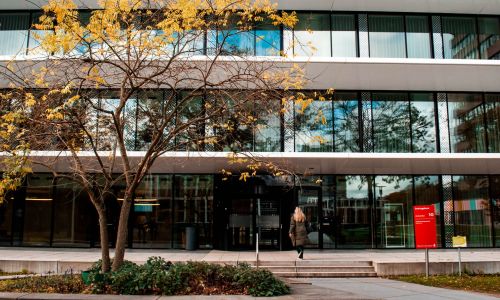The medical faculty is not overly affected by all the cuts: ‘The financial situation looks stable’
While most of the faculties at Radboud University have been hit hard by the budget cuts, it’s life as normal for the Faculty of Medical Sciences. There are no financial shortfalls - at least for now.
Recruitment freezes, fewer student assistants and courses being dropped: many faculties are under code red financially. Every effort must be made to ensure that the agreed budget-neutral budgets are met by 2027. After the cuts to Higher Education announced by the Schoof cabinet on Budget Day, those concerns only increased.
However, there is no sense of panic at the medical faculty. In fact, no measures have even been introduced. ‘The financial situation for 2024 and 2025 looks stable,’ a Radboudumc spokesperson wrote in an email. The faculty enjoys a special position, compared with the other faculties. For research and education, the faculty is funded by the university. At organisational level, however, it is linked to the hospital in these two areas. In financial terms, patient care is separate from this.
Radboud University in overdraft
No faculty or university department will escape the cuts. But how do you handle such a project? This is the sixt article in this series. Read all the stories here.
‘We are happy that our financial situation is generally stable, despite the wage increase that has not been fully compensated by the government and the increase in energy costs,’ the spokesperson writes. Austerity measures are therefore unnecessary. ‘There are currently no plans to reduce the number of staff.’
Future uncertain
This stability stems from previous ‘efficiency gains’, the spokesperson explains. Previously, the faculty had three research institutes: Donders Centre for Medical Neurosciences, Radboud Institute for Health Sciences and Radboud Institute for Molecular Life Sciences. In January 2023, these were integrated to create one umbrella institute: the Radboudumc Research Institute for Medical Innovation.
Student numbers also remain stable. This is mainly because the numbers for the study programmes with a numerus fixus (Medicine, Dentistry and Biomedical Sciences) are set by law.
Nevertheless, within medical sciences, people are also facing the coming years with some caution. The faculty may still encounter tougher financial weather in the future. ‘Based on possible new budget plans from the government, (declining, ed.) student intake and the availability of research grants from the government, we are expecting cuts in the longer term (after 2026).’
How many cuts may need to be made is still also unclear to the faculty itself. ‘The Faculty of Medical Sciences is in discussion with the Executive Board about the financial relations, including the announced cuts.’ It is therefore also unknown whether the medical faculty will achieve the zero budget by 2027, which the Executive Board has imposed on all faculties. Any shortfall cannot be met with money from patient care, said the spokesperson.
Accountability
This article was produced based on written responses from the Faculty of Medical Sciences. While VOX ( university magazine) interviewed administrators at other faculties in this series, the press office of Radboudumc said that an interview could not be arranged at short notice. The questions were subsequently answered by email.





